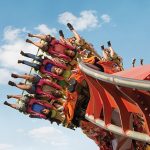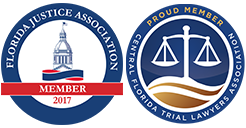Florida is famous for its theme parks, like Disney, Universal and Sea World. However Florida also has a large number of smaller parks and amusement centers. While Orlando and Central Florida are synonymous with the term theme parks, both the Tampa and Miami areas are also noted for their various attractions.
What To Do If You Are Injured
 As discussed below, injuries are fairly common at theme and amusement parks. A list of the notable theme and amusement parks are additionally listed below. However, if you or a loved one is injured while visiting an amusement or theme park in Florida, there are certain steps you need to take to protect your claim and your rights. For the complete details, please visit our Theme Park Accident page.
As discussed below, injuries are fairly common at theme and amusement parks. A list of the notable theme and amusement parks are additionally listed below. However, if you or a loved one is injured while visiting an amusement or theme park in Florida, there are certain steps you need to take to protect your claim and your rights. For the complete details, please visit our Theme Park Accident page.
At a minimum, you should try to do the following if you, a family member or a companion is injured while visiting at a theme or amusement park in Florida:
– Take photographs and videos of the scene. Any dangerous conditions such as broken devices, foreign substances or defects in a roadway or sidewalk can be preserved by photographs or video. Be aware that you cannot rely on the park to have photos or a video of the incident or the conditions causing your injury. Even if the park does have photos or videos, they will fight you at every turn to release it to you or your attorney. The best way to protect yourself is to take pictures and videos of the existing conditions that caused or contributed to your injury.
In a case that we had against a local Central Florida theme park, the client tripped and fell when she stepped in broken concrete that was around a manhole cover in the middle of the walkway. The park said it had no photos or videos of the scene. They also denied that the manhole was a dangerous problem to visitors at the park. Thankfully, the client’s family took a lot of pictures and video of the scene. They also caught another visitor tripping over the exact same area on their video. This photographic evidence was key in proving the theme park was responsible for the client’s injuries and getting the compensation that they were due.
– Save any tickets or admission documents you were given. Sometimes the tickets contain clauses on them that the park will use to say you agreed to not hold the park responsible for any injury that a person sustains while in the park.
– Some parks, especially the smaller ones like go cart tracks or water parks, will have you actually sign paperwork saying they are not responsible for injuries on their property. You should always keep a copy of the document if you can remember to do so.
– Obtain the names, addresses and phone numbers of any witnesses and of any Theme Park employees who saw the incident and/or rendered aid.
– Do not give the Theme Park a written or a recorded statement of any kind.
– You may ask them for an incident report although they are not obligated to give you one under Florida law.
– Do not sign anything. This includes any paperwork you may be asked to sign at a Theme Park’s on-site medical center (such as a medical release or authorization allowing the Theme Park to obtain your personal medical information). We recommend that you avoid signing any of these forms.
– As soon as possible after the injury, you should record a detailed recollection of what happened, including the date, time of day, what the weather was like, where you were going, who you were with, etc. If you don’t do this, you may forget small but important details.
– Consider hiring an attorney.
While you may want to contact an attorney where you live, chances are the Theme Park will deny your claim. When that happens the only other step you can take is to file a lawsuit against the Theme Park. If you have a hometown attorney and the claim is denied, he will have to look for a Florida attorney to refer the case to so that a suit can be filed. Sometimes it is simply easier to hire a local Orlando Theme Park injury attorney instead of the hometown attorney.
List of Notable Florida Theme and Amusement Parks
Although far from complete, the lists below include just some of the notable theme and amusement parks found in Florida. Additionally, hundreds of “smaller” parks and attractions offer tourists a vast range of activities including helicopter rides, skydiving (both indoor and outdoor), roller coasters, race car driving experiences, water rides and countless other adventures.
Orlando Theme Parks
– Magic Kingdom
– Epcot
– SeaWorld Orlando
– Universal Studios Florida
– Kennedy Space Center Visitor Complex
– Disney’s Animal Kingdom
– Discovery Cove
– Island of Adventure
– Disney’s Hollywood Studio
– Holy Land Experience
– Gatorland
– Wet ‘n Wild
– Fun Spot America
Tampa Theme Parks
– Busch Gardens
– Adventure Island
– Legoland Florida
– Speed Boat Adventures
– Safari Wilderness Ranch
– Dinosaur World
– The Ringling Museum
– Airheads Trampoline Arena
Miami Attractions
– Miami Seaquarium
– Six Flags Miami
– Santa’s Enchanted Forest
– Monkey Jungles
– Miami Zoo
– Jungle Island
– Everglades National Park
Recent Theme Park Accidents
Recently theme park accidents have been getting a lot of national media and news attention. The fatal accident at the Ohio State Fair in late July is sadly stimulating the media’s attention to a scrutiny of theme park safety (that many think is perhaps long overdue). In the tragic incident on a spinning pendulum ride called the Fire Ball, the seats actually detached during the ride resulting in one fatality and serious injuries to seven other riders. One of the injuries actually involved a bystander who was not even on the ride, but was struck by falling debris after the ride’s seats detached. Although the ride had been “thoroughly inspected” several times before being granted a permit to operate, an ongoing investigation was initiated that included shutting down similar rides operating across the US (including the California State Fair in Sacramento and New Jersey’s Monmouth County Fair). The Director of the Ohio Department of Agriculture stated that the Fire Ball passed the required inspection of over 30 safety points, including checks of the brakes, structural cracking and both proper assembly and installation.
Another tragedy that received a lot of national media attention in 2017 was the death of a ten year old boy who was killed on a water slide in Kansas City. The slide was actually the tallest water slide in the world according to the Guinness World Records, dropping riders a staggering 169 feet at velocities exceeding 65 miles per hour. The ride was known as the Verruckt, which is German for crazy or insane. According to NBC News, the child’s family has reached a settlement with the park’s operators and the slide is scheduled to be torn down.
Amusement Park Accident Statistics
The statistics for amusement park accidents are tracked by the the United State’s Consumer Product Safety Commission (CPSC). According to the CPSC, “amusement park accidents” refer only to serious injuries or deaths that occur at an amusement park. Other incidents are classified as minor and no statistics are actually available. All of Florida’s major theme parks are required to submit a quarterly report detailing any accidents that occurred at their parks. The only stipulation that the CPSC requires of the parks is that they report all fatal incidents, or incidents that resulted in an overnight hospital stay by the injured person.
Actual statistics are “spotty” at best. According to the CPSC:
– Between 1990 and 2004 there were a total of 52 fatalities associated with amusement park rides.
– Between 1986 and 2001 there was an average of 4.5 amusement park ride related fatalities per year.
Perhaps some statistics from Wikipedia are more helpful:
– An estimated 4,400 children are injured annually on amusement park rides.
– 1.5% of those injuries are serious enough to require that the child be hospitalized.
– Between 1990 and 2000, approximately 82,000 children under 18 were taken to emergency rooms after suffering an injury on an amusement park ride.
– The most frequent injuries reported were to the child’s head, neck, arms, face, and legs.
– The majority of reported injuries were due to improper restraints or padding, or were caused by the child falling in, off, or against the ride.
The only other statistic regarding theme park accidents is from the International Association of Amusement Parks and Attractions (IAAPA). They reported that in 2011, a total of 1,204 people were injured at 400 amusement parks. One must keep in mind however that the IAAPA is the largest trade association for amusement park facilities and represents more than 5,300 facility, supplier, and individual members.
Our attorneys have years of experience handling Theme Park personal injury cases. At The Law Office of Mark Risi we are comfortable working with our clients who live in other parts of the United States. With e-mail accessibility and toll free telephone numbers, being available for our clients is easier than ever. So if you have been injured in an accident at an Orlando area amusement or theme park, call us today at (407) 423-1313 or contact us online now for a free consultation without any obligation.
